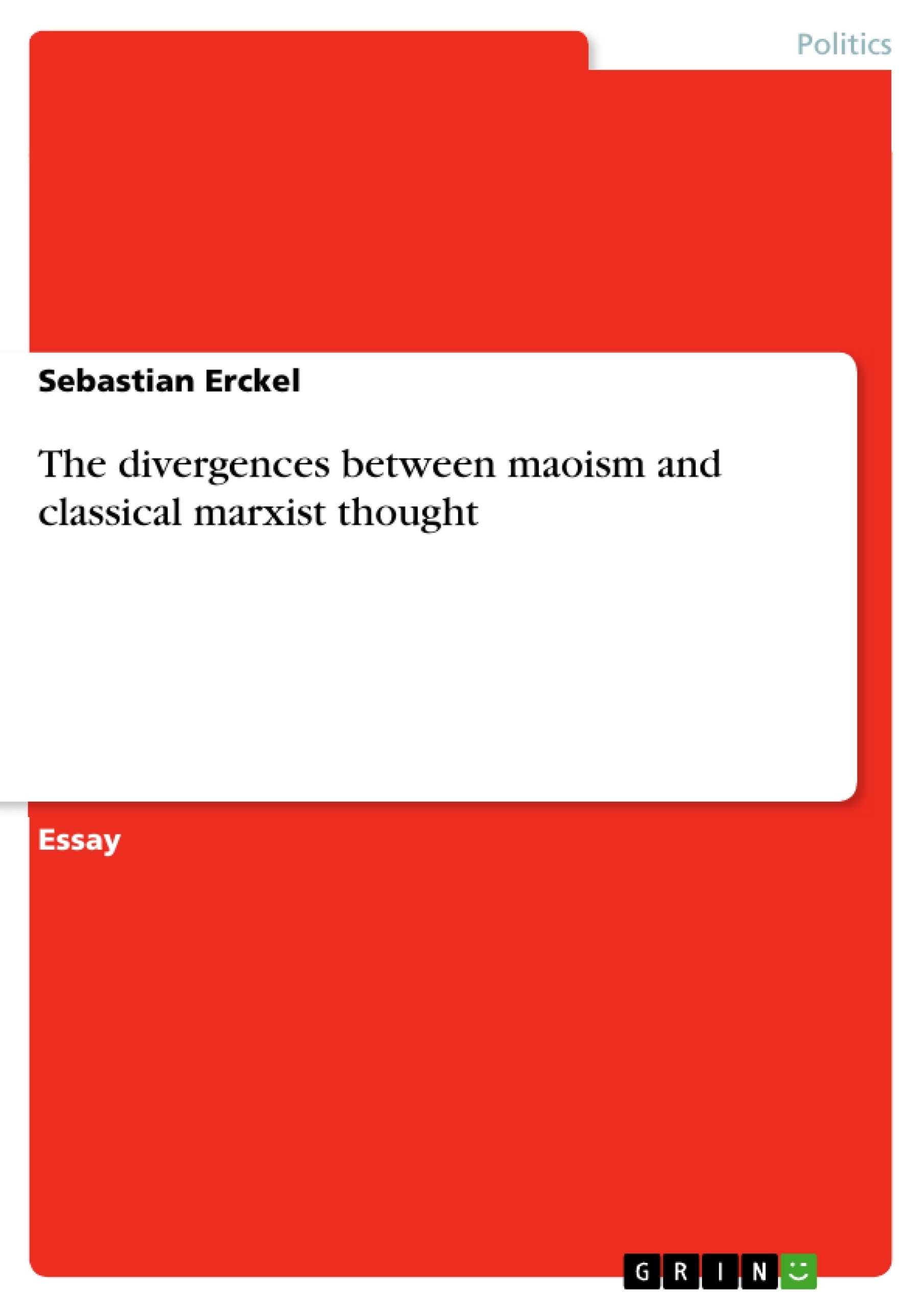This essay seeks to evaluate the differences between Maoist ideology and classical Marxist thought. Although Mao himself never denied his Marxist roots, a few significant deviations can be identified that, this essay suggests, have their origin in Mao's focus on practical realisation. While Marx undeniably provided the far more coherent theoretical framework for a proletarian revolution, this framework turned out to be practically useless whenever the ground conditions (such as an industrialised society with a conscious proletariate) were not met. Since all successfull revolutions of the 20th century took place in societies where according to classical Marxism they should not have, Maoism as an ideological and revolutionary guideline that actually worked in unfavourable conditions of underdevelopment and dependency became far more appealing.
Inhaltsverzeichnis (Table of Contents)
- Introduction
- Nationalism, Revolution(s) and Civil War
- The Confucian Background
- Historical Background
- Ideology and Practice- the Distinct Features of Maoism
- The People's War
- Ideology and the Theory of Contradictions
- Permanent Revolution and Mass Campaigns
- Conclusion
Zielsetzung und Themenschwerpunkte (Objectives and Key Themes)
This paper explores the reasons for the continued relevance of Maoism despite its historical failures in China and Cambodia. It argues that Maoism is a distinct ideology offering a step-by-step guide for revolution, contrasting it with the theoretical framework of classical Marxism. The paper examines the differences between Maoism and classical Marxist thought, highlighting the evolution of Maoism as a separate school of thought within the broader Marxist tradition.- The enduring appeal of Maoism despite its failures
- The distinct characteristics of Maoism as a separate ideology
- The influence of classical Marxism on Mao's revolutionary thought
- The evolution of Maoism as a distinct school of thought within Marxism
- The historical context of the Chinese Revolution and its influence on Mao's ideas
Zusammenfassung der Kapitel (Chapter Summaries)
- Introduction: This section provides a general overview of the paper's objective and argues that Maoism, despite its failures, continues to be relevant in revolutionary movements due to its practical guide for revolution, unlike classical Marxism.
- Nationalism, Revolution(s) and Civil War: This chapter examines the Confucian background and historical context of the Chinese Revolution, emphasizing the impact of Confucianism on Chinese society and the influence of external and internal developments on the disintegration of Imperial China.
- Ideology and Practice- the Distinct Features of Maoism: This chapter delves into the unique features of Maoist ideology, including the concept of "People's War" and its emphasis on the theory of contradictions, contrasting them with classical Marxist thought.
- Permanent Revolution and Mass Campaigns: This chapter focuses on the concept of "permanent revolution" and its application in mass campaigns within the context of Maoist ideology, further exploring the differences between Maoism and classical Marxism.
Schlüsselwörter (Keywords)
This paper focuses on the key themes of Maoism, classical Marxism, revolution, ideology, the Chinese Revolution, the People's War, and the theory of contradictions. It examines the historical context of the Chinese Revolution and its influence on the development of Maoist thought, highlighting the differences between these two influential streams of Marxist thinking.- Quote paper
- Sebastian Erckel (Author), 2008, The divergences between maoism and classical marxist thought, Munich, GRIN Verlag, https://www.grin.com/document/126141




